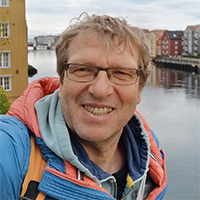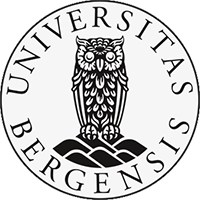What kind of background is expected?
We expect a bachelor degree in Biology containing a minimum of:
An excellent scientific BSc thesis or an excellent finalised research project (minimum 1.7 according to the German grading system).
and
70 ECTS in Biology / Biosciences, 10 ECTS in Inorganic/Organic/Physical chemistry/Biochemistry, 12 ECTS in physics/mathematics/(bio)statistics, biophysics
or
60 ECTS in Biology / Biosciences, 15 ECTS in Inorganic / Organic / Physical chemistry, Biochemistry, 15 ECTS in physics / mathematics / (bio)statistics, biophysics
or
60 ECTS in Biology/Biosciences, 20 ECTS in Inorganic/Organic/Physical chemistry, Biochemistry, 12 ECTS in physics/mathematics/(bio)statistics, biophysics
I have not finished my B.Sc. yet. What shall I do?
If you are still working on your B.Sc. or higher degree but still want to apply to the Master program please do so and indicate when you will submit your B.Sc. thesis. Having no B.Sc. certificate yet is not a problem and is assumed by the Master program due to the earlier application deadline. Therefore, please submit your transcript of records and your thesis title and expected submission date together with the other required documents. This will be sufficient to the application.
However, proof of completed bachelor should be no later than 15th September for winter semester and 15th March for summer semester.
How long does the M.Sc. take?
The Double Degree Programme will last 2 years and contains 4 semesters. One to two additional semesters can be added if the student wishes to do so in order to focus more intensively on the course topics or the Master’s thesis.
What is meant with "references"?
The sentence “a CV including two references (no letter of recommendation is needed)” means that you just have to add at the end of your CV the contact details of two people who are familiar with your scientific work. Please add their names, address, url, email and phone number.
How much are the tuition fees?
Students participating in the Double Degree Programme shall only pay tuition fees to their home institution. Only supplementary fees (e.g. regional administrative fees) shall be paid to the host institution. For JMU there is no tuition fee (for both EU and international students), but only administration fee of 146€ per semester.
How are the students selected?
1. The Parties may recruit up to 10 exchange students per institution per academic year.
2. The selection of exchange students towards the end of the first semester is based on shared responsibility between both parties, as follows:
a. The home institution makes preliminary selection of candidates.
b. The final decision about the acceptance of the exchange students is taken by the host institution.
c. The criteria for selection will be based on academic records and motivation without regard to race, national or ethnic origin, religion, colour, age, gender, marital status, physical disabilities, or sexual orientation.
d. Care will be taken by both Academic Boards to select only those students who shall presumably complete their Double Degree studies, based on their academic performance and motivation.
Do I need German language proficiency to take the courses?
German Basics Level A2 is recommended but not a must. Courses are held in English.
Are there any scholarship/grant/stipend opportunities?
When are the courses actually starting?
Winter semester in JMU starts in the middle of October. Summer semester starts in the middle of April.
How much is monthly living cost in Würzburg/Bergen?
Würzburg: Monthly living cost as a student without rent: approx. €500.
Bergen: Monthly living cost as a student without rent: approx. NOK 7500 (€650).
Can I work as a student?
International students in Würzburg can work alongside their studies, but there are some important rules to follow. If you are a non-EU/EEA student, you are allowed to work 120 full days or 240 half days per year without a special permit. EU/EEA students have the same access to the job market as German students.
Würzburg offers many student-friendly job opportunities in areas like university departments, cafés, retail, and research assistant roles (“HiWi jobs”) at the university. Basic German language skills can greatly improve your chances, though many jobs at the university may require only English.
Make sure your work doesn’t interfere with your studies and always check with the Ausländerbehörde (Foreigners’ Office) or the Student Services for current regulations and support.
How to travel between Würzburg and Bergen?
There is a direct flight from Frankfurt Airport (FRA) to Bergen Airport (BGO), with a flight time of approximately 2 hours. From Würzburg Central Station, you can reach Frankfurt Airport conveniently by direct train, which takes about 1.5 hours.
Contact us
Many common questions are already answered on our FAQs page. Please take a moment to check it before writing us an email.
Questions about courses, study plan, credit points, and scientific issues in JMU
Jochen Krauß
j.krauss(at)uni-wuerzburg.de
Questions about application for master of Bioscience and Erasmus in JMU
Alois Palmetshofer
BioCareers(at)biozentrum.uni-wuerzburg.de


